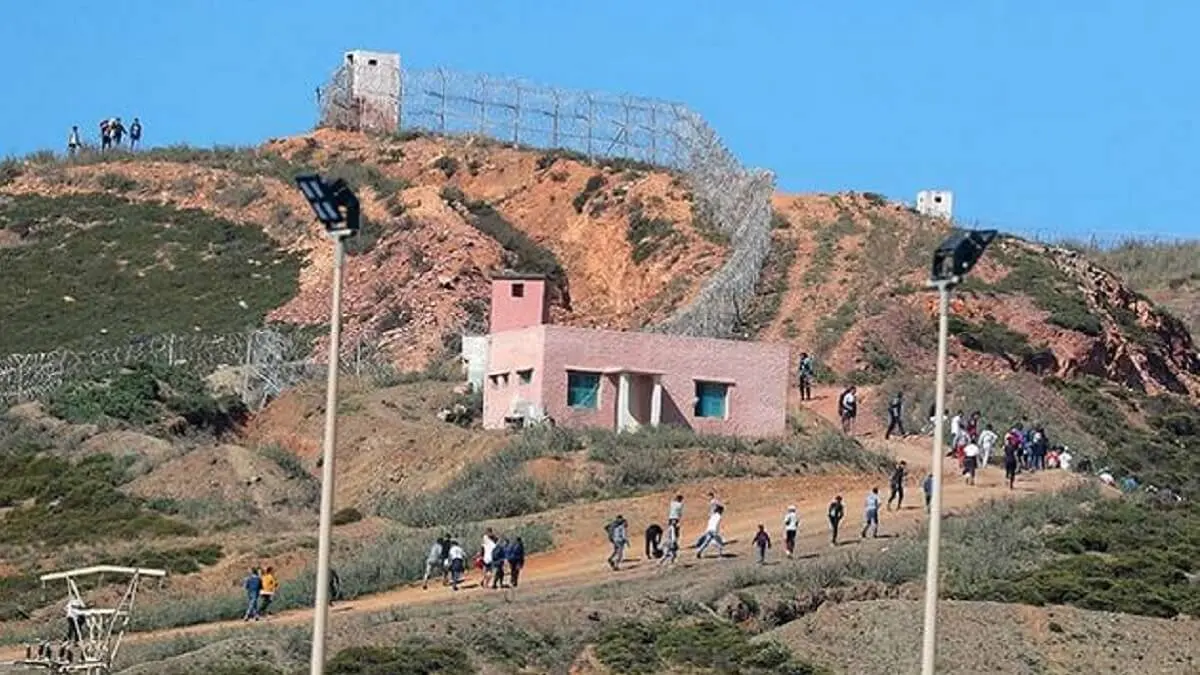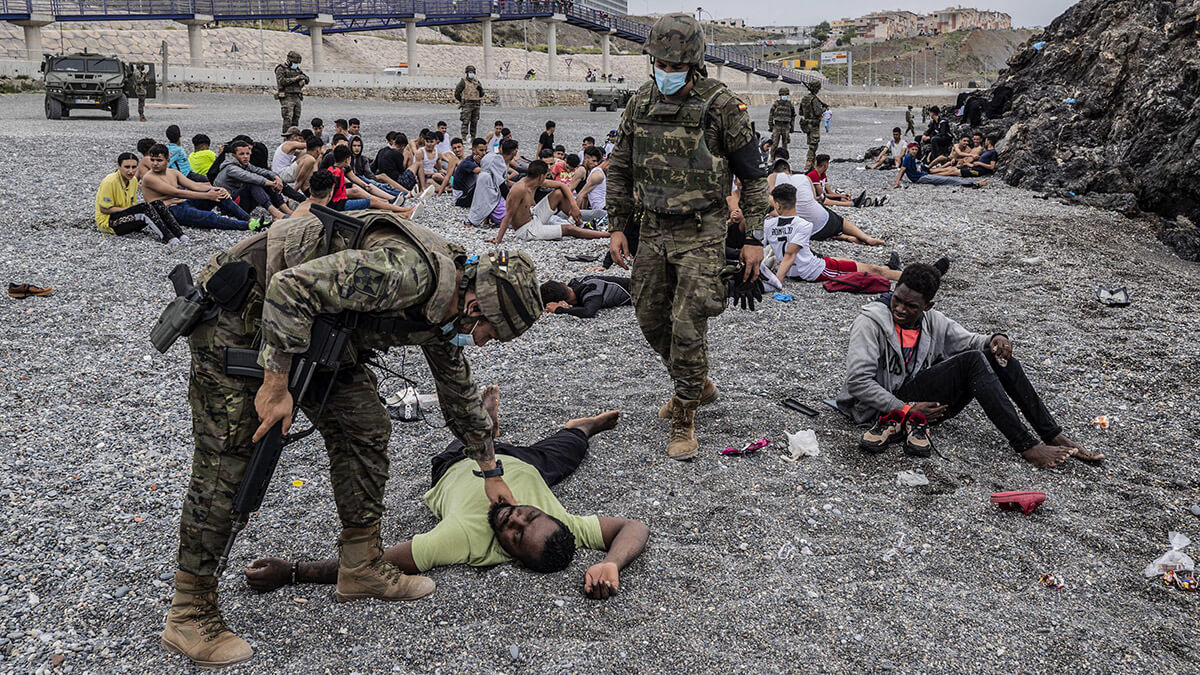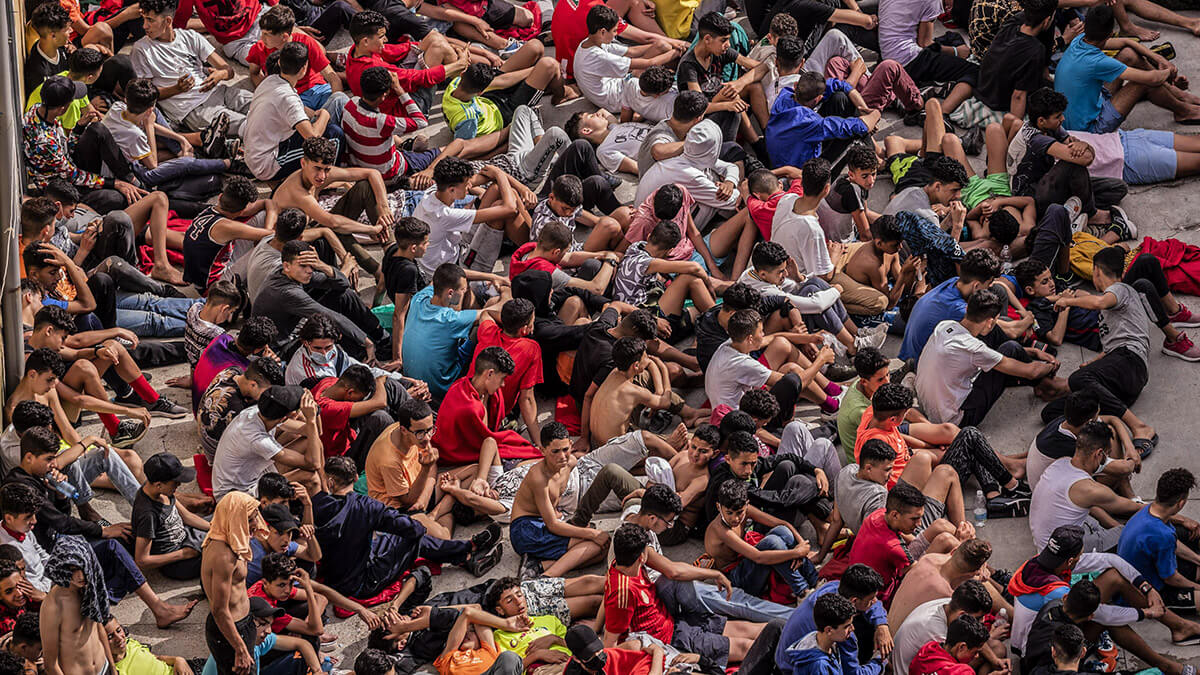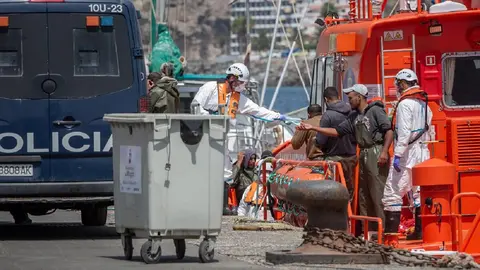Melilla notes good cooperation between Morocco and Spain against illegal migration

Morocco and Spain have been developing a close cooperation against illegal migration for years, with a very remarkable work of the security forces of both nations.
This can be seen in data such as the latest recorded in Melilla. In 2024, the Spanish autonomous city recorded the lowest inflow of illegal migrants since the 90s of the last century, with a total of 113 arrivals.
Moroccan security forces prevented up to 49,000 illegal migration attempts last year, with Spain as the gateway to Europe.

The Spanish enclave of Melilla recorded one of its lowest irregular migration figures since the early 1990s, with only 113 migrants entering the autonomous city last year, out of an overall figure of 49,000 failed entry attempts.
The figure for 2024 is a significant decrease from the 340 illegal entries recorded in 2023.
According to data reported by the Spanish news agency Europa Press, arrivals by sea experienced the most drastic reduction, with only 21 undocumented persons arriving on the shores of Melilla, a decrease of 88.3 % compared to the 180 registered in 2023.
Entries from land also experienced a notable decrease, falling by 42.5 %, from 160 in 2023 to 92 in 2024.

This sharp decline contrasts sharply with previous years' figures, in particular with the tragic events of 24 June 2022, when between 1,500 and 2,000 refugees and migrants, predominantly Sudanese nationals, attempted to cross the border between Morocco and Spain through Melilla.
Although 150 people managed to enter, the attempt resulted in at least 24 deaths on the Moroccan side, according to official sources, although non-governmental organisations reported a death toll of more than 37.
Morocco is a priority partner for Spain in the fight against irregular migration. A phenomenon that in many cases means the proliferation of illegal acts related on several occasions to transnational terrorism or the activity of organised criminal gangs.

The movement of these irregular migrants is in many cases related to the actions of criminal organisations dedicated to the illegal trafficking of people who profit financially from the desperate situation of thousands and thousands of people, especially from sub-Saharan Africa, fleeing poverty, wars and even political repression in their countries. In the face of personal tragedies and the desperation of many, these criminal organisations charge huge sums of money to offer a way out to Europe, mainly through Spain, with itineraries that often put the lives of these people at maximum risk.
The cooperation of Morocco's security forces in preventing these phenomena has been demonstrated on many occasions, such as in the episodes of September 2024, when, following a strong call on social networks by organised gangs, thousands of illegal migrants tried to storm the border crossings of Ceuta and Melilla to cross from Morocco into Spanish territory.
At the time, the Spanish government, through the Minister of Foreign Affairs, José Manuel Albares, praised the action of the Moroccan security forces in containing the wave of clandestine migration that stalked the borders of Ceuta and Melilla, both by sea and by land.










